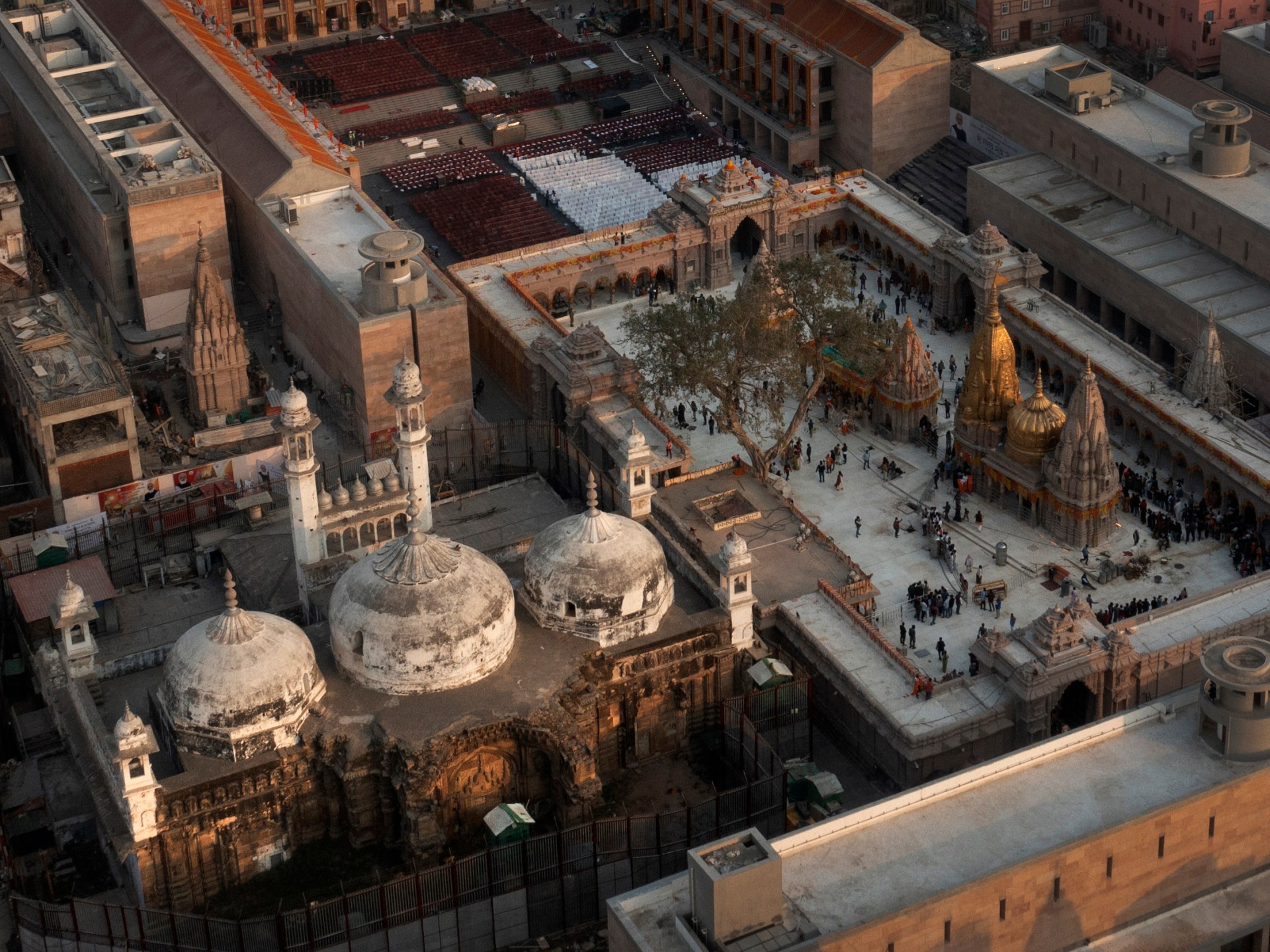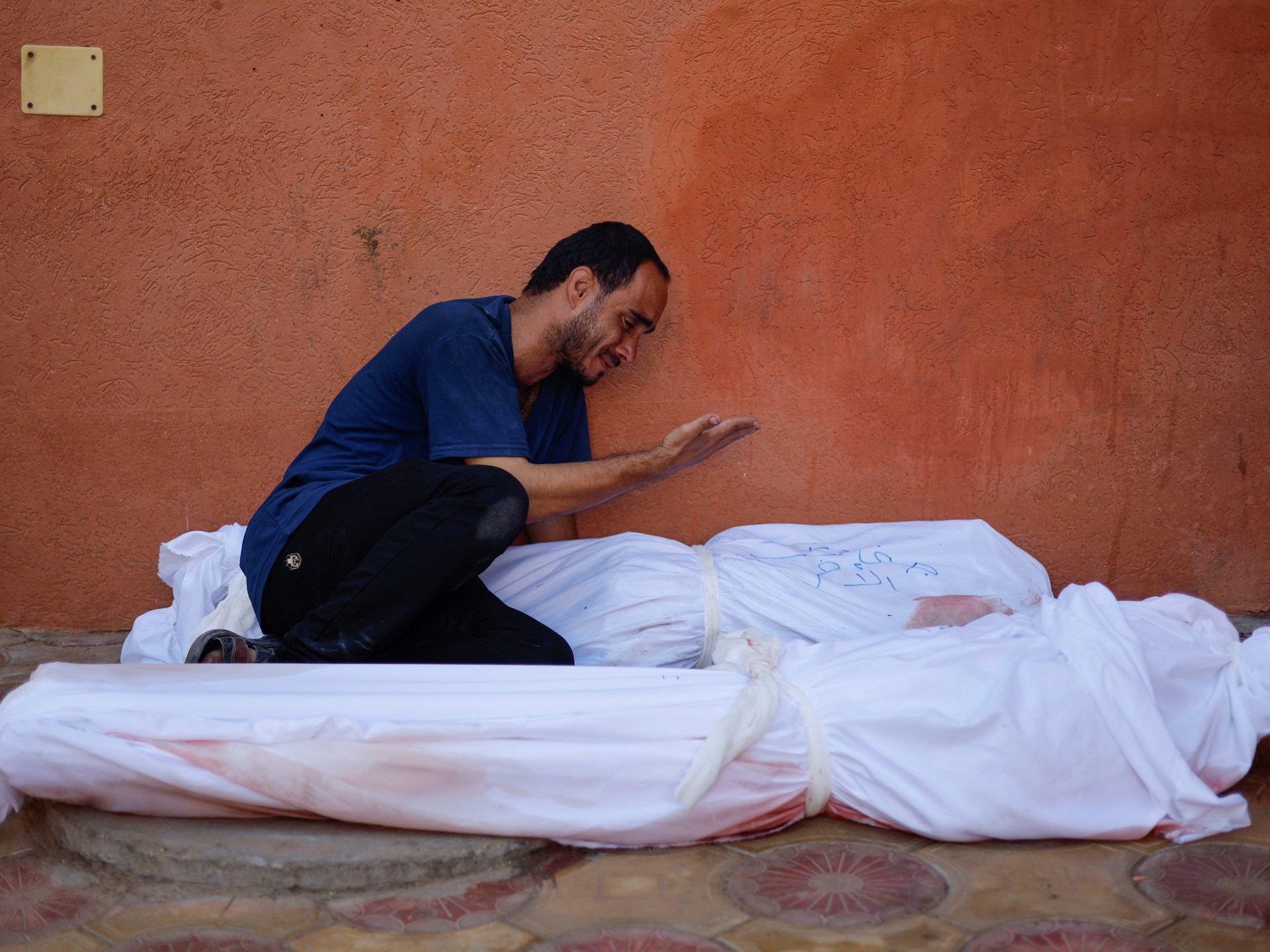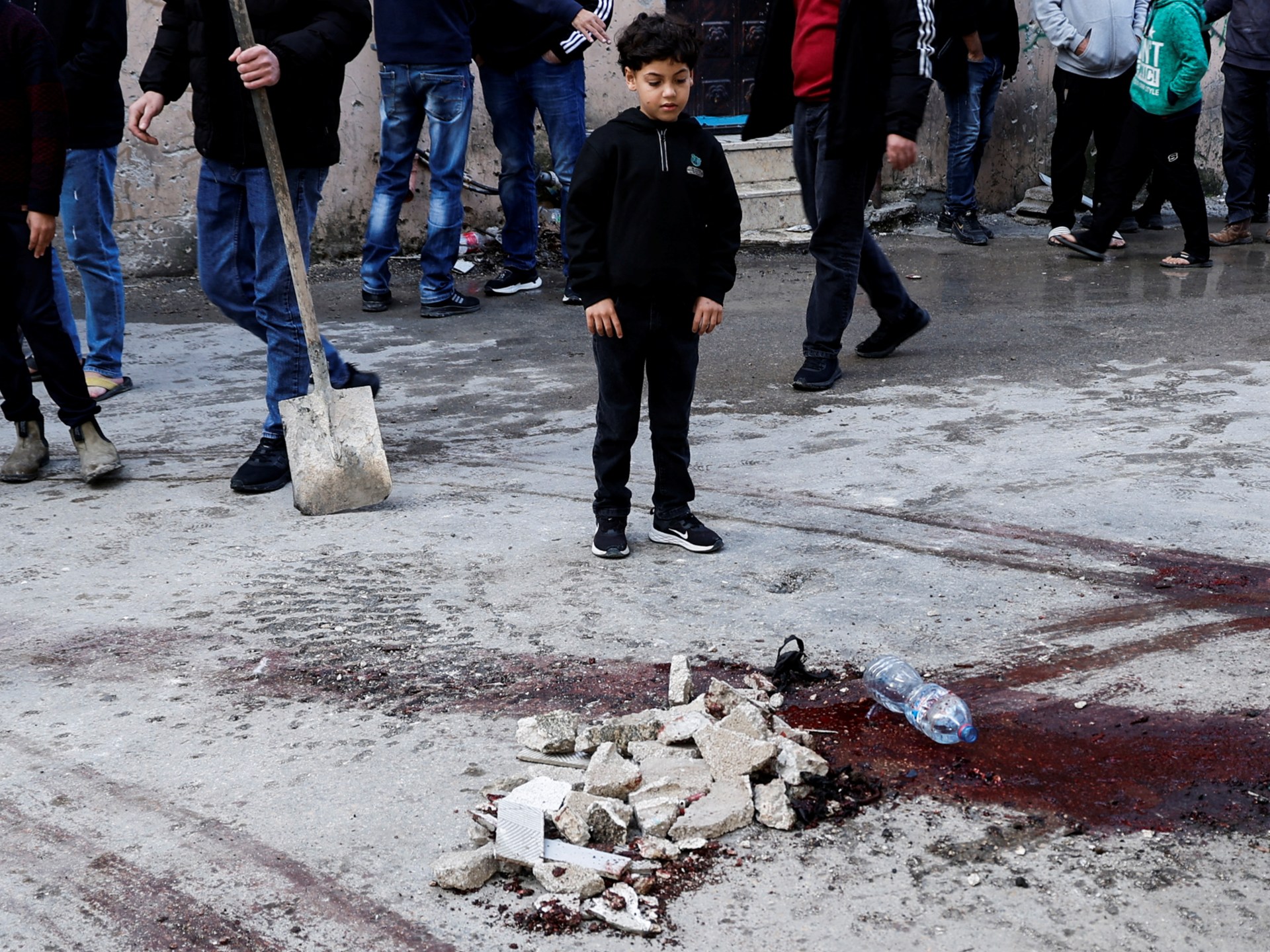
Hindu worshipers have begun praying at a 17th-century mosque in the Indian city of Varanasi, hours after a court order gave them the green light to move to the disputed site.
The Gyanvapi Mosque in Varanasi is one of several Muslim places of worship that right-wing Hindu groups, backed by Prime Minister Narendra Modi’s Bharatiya Janata Party (BJP), have been trying to retake for decades.
Varanasi is Modi’s constituency in Uttar Pradesh, India’s most populous state, which is also ruled by the BJP.
On Wednesday, a local court ruled that Hindu worshipers would be allowed to pray in the building’s basement and ordered authorities to make “proper arrangements” for worshipers within a week.
According to Indian media, family members of Hindu priests began praying in the basement of the mosque in the early hours of Thursday.
#REGARD A priest prays at the ‘Vyas Ji ka Tehkhana’ at the Gyanvapi Mosque in Varanasi on the orders of the district court.
Images confirmed by Vishnu Shankar Jain, the lawyer for the Hindu side in the Gyanvapi case pic.twitter.com/mUB6TMGpET
– ANI (@ANI) February 1, 2024
Akhlaq Ahmad, the lawyer representing Muslim applicants, said the court order would be appealed.
The Gyanvapi Mosque was built during the Mughal Empire in a city where Hindus from all over the country burn relatives on the Ganges. Hindu believers claim the mosque replaced a temple to the Hindu deity Shiva.
Last month, the Archaeological Survey of India said a Tour of the site seemed to confirm the assumption that there was originally a temple here.
Emboldened right-wing Hindu groups have laid claim to several Muslim places of worship They say they were built on ancient temples during Mughal rule.
Centuries-old mosque in Indian capital razed
Meanwhile, bulldozers have demolished a centuries-old mosque in the Indian capital, a member of the building’s management committee said.
Masjid Akhonji in New Delhi, which its administrators say is about 600 years old, was home to 22 students enrolled in an Islamic boarding school.
It was demolished on Tuesday in a forest of Mehrauli, a wealthy district with centuries-old ruins from settlements that predate modern Delhi.
In Mehrauli, Delhi, the Delhi Development Authority on Tuesday carried out an indiscriminate demolition of a 600-year-old mosque.
Imam Zakir Hussain stated that Masjid Akhonji, which housed the Bahrul Uloom Madrasa and the tombs of revered personalities, was completely destroyed. pic.twitter.com/tjEWowUfQN
– Maktoob (@MaktoobMedia) January 31, 2024
Mohammad Zaffar, a member of the mosque’s management committee, told Agence France-Presse news agency that no prior notice was given before a demolition was carried out “in the dark of night.”
He said many graves on the mosque grounds were also desecrated and no one was allowed to take copies of the Quran or other materials from inside the mosque before it was destroyed.
“Many of our revered personalities and my own ancestors were buried there. There is now no trace of the graves,” Zaffar told AFP. “The rubble from the mosque and graves was removed and deposited elsewhere.”
Officials said the demolition was part of a drive to remove “illegal” structures from a forest reserve.
Since Modi took office in 2014, calls for India to entrench Hindu supremacy have grown louder, leaving the roughly 200 million-strong Muslim minority – the world’s third-largest Muslim population – increasingly worried about its future .
Last week, Modi led one big inauguration ceremony in the nearby town of Ayodhya for a Hindu temple built on the former site of another Mughal-era mosque.
Hindu zealots demolished the Babri Mosque in 1992 as part of a campaign led by members of Modi’s party, triggering sectarian unrest that killed 2,000 people across the country, most of them Muslims.
A Decades-long court battle Disputes over the future of the Babri site ended in 2019 when India’s Supreme Court allowed the construction of a temple to the deity Ram, who Hindu scripture says was born in the city.
The consecration of the Ram temple by Modi fulfilled a 35 year promise the BJP and was portrayed by the party and its allies as a Hindu reawakening. It also came months before national elections due in May and is expected to boost Modi’s chances of winning a third term.
Critics accuse Modi of pushing a pro-Hindu agenda and encouraging discrimination against Muslims, but he says his government is not doing so.
Last week, a senior leader of the Rashtriya Swayamsevak Sangh (RSS), the BJP’s far-right ideological mentor, questioned whether the Gyanvapi Mosque and three others, including the destroyed one in Ayodhya, were even mosques.
“Whether we should consider them mosques or not, the people of the country and the world should think about it. “They should be on the side of truth or should they be on the side of false?” This is what Indresh Kumar said in an interview with the Reuters news agency.
“Accept the truth. Have dialogues and let the justice system decide.”






Recent Comments